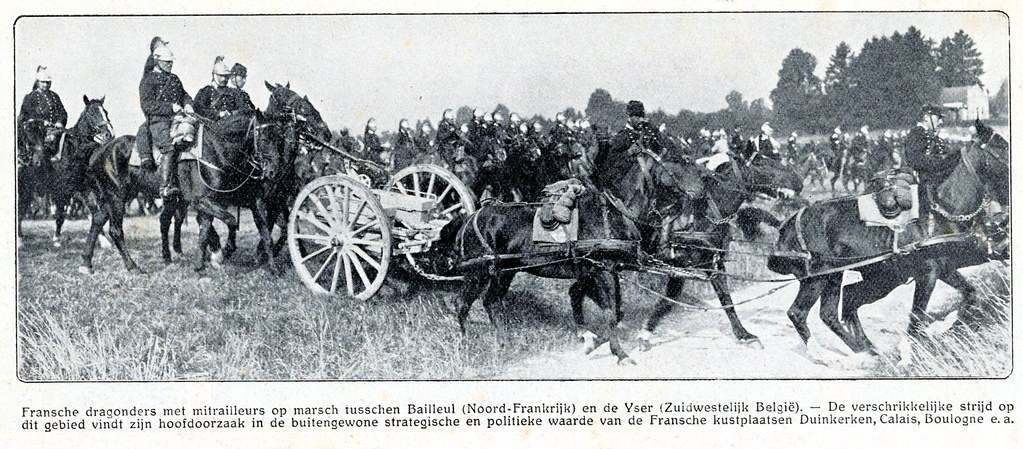
May 18, 2020, by ahzsa
Britain’s entry into the First World War, seen through a wonderful tranche of Open Access articles from Prof. John Young
Among the many items available on ‘Open Access’ from the Department of History at the University of Nottingham are four articles, by John W. Young, which aim to deepen our understanding of Britain’s decision to declare war on Germany in 1914. The first of these articles is ‘Conservative Leaders, Coalition, and Britain’s decision for war in 1914’ (published in Diplomacy and Statecraft, Vol. 25, No.2, in 2014), which explores the idea that Conservative leaders had a major impact on the decision by the Liberal government to enter the Great War. The knowledge that the Conservatives wre ready to fight against Germany undermined those ministers who were opposed to war. They could see that, if the government’s collapsed over decision to fight, the Conservatives would take office and (maybe in a coalition with pro-war Liberals) would then enter the war anyway. Young’s article makes a detailed investigation into the actions of Conservative leaders, argues that the possibility of a coalition government was more serious than it is usually considered, and shows how one key player – Winston Churchill, then a Liberal minister – subsequently tried to disguise his role in events. Access this at:
In ‘Emotions and the British Government’s decision for war in 1914’ (published in Diplomacy and Statecraft, Vol. 29, No.4, in 2018), engages with a broader movement in the study of History, known as the ‘emotional turn.’ This is associated with findings from the field of neuroscience, that cognition and emotion – rather than operating independently in our brains – are inextricably bound together in human decision-making. This implies that, when studying decisions of war and peace, we need to consider politicians’ emotional make-up, alongside the rational arguments they use. So far, most work in this area has concentrated on American foreign policy since 1945, but this article broadens the focus to consider the impact of emotions on British Cabinet ministers as they debated whether to go to war in 1914. It shows that, even though ministers liked to interpret their actions as rational ones, there is a lot of evidence that emotions also affected them. A focus on emotions helps explain why different approaches were taken by individual ministers, why the majority came to approve intervention in the conflict, and how the Prime Minister, H. H. Asquith, by appearing to control his feelings and playing on the emotions of others, kept the government largely united through a traumatic period. Access this at:
‘Ambassador George Buchanan and the July Crisis’ (published in the International History Review, Vol.40, No.1, in 2018) shifts its attention abroad and looks at the way Britain was put under strong pressure, from Russia and France, to declare it would fight alongside them, against Germany. Britain had made the entente cordiale with France in 1904 and another entente, with Russia, in 1907. The focus of the article is on the British Ambassador to Russia, Sir George Buchanan, whose performance during the war crisis has been the subject to radically different interpretations. Some believe that he genuinely tried to restrain Russia from going to war, but others feel his reports about Russian decision-making were ill-informed and unhelpful. This article reviews all the evidence afresh, arguing that Buchanan worked to preserve peace for a time and did not deserve some of the criticisms levelled at him. Nonetheless, the preservation of the Triple Entente was a priority for him and, once it became clear that a European war could not be avoided, he became more interested in defending his Russian behaviour than in providing his own government with an accurate analysis of events. Access this at:
https://nottingham-repository.worktribe.com/output/963045
Rather different is ‘Lewis Harcourt’s Journal of the 1914 War Crisis’ (published in the International History Review, Vol.40, No.2, in 2018). This is an edition of a diary kept during the war crisis by Lewis Harcourt, who was Colonial Secretary in the Liberal government. The article reproduces the whole of the diary, from 26 July 1914, when Harcourt first mentions the events of the ‘July Crisis’, until 4 August, when Britain declared war on Germany. It is based on the original text, kept at the Bodleian Library in Oxford, which only came to light in 2008. This is an extremely important historical sources, because no official records were taken of British Cabinet meetings until late 1916, apart from brief reports by the Prime Minister to the monarch. The only source with comparative detail to Harcourt’s on the Cabinet discussions, is another diary, kept by education minister Jack Pease, which has already been published. Through Harcourt’s account, we can follow the twists and turns of British decision-making, and see how a strong majority for peace in late July 1914 turned into a clear majority for war by 4 August. Access this at: https://nottingham-repository.worktribe.com/output/892728
No comments yet, fill out a comment to be the first

Leave a Reply